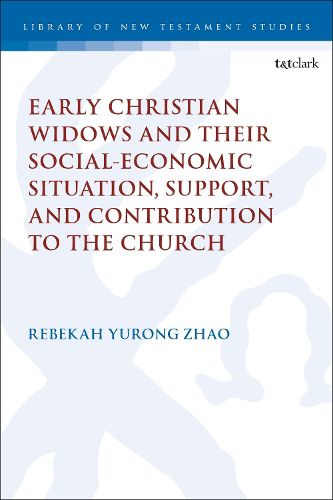Readings Newsletter
Become a Readings Member to make your shopping experience even easier.
Sign in or sign up for free!
You’re not far away from qualifying for FREE standard shipping within Australia
You’ve qualified for FREE standard shipping within Australia
The cart is loading…






In the first consideration of widows in early Christianity, Rebekah Yurong Zhao explores the social-economic situation of widows, their means of support, and their contributions to the church. Through literary analysis of three different genres of early Christian texts - narrative, instruction, and apologetic texts, Zhao argues that historical conclusions can be drawn, especially when set against the cultural backgrounds in both the Roman world and ancient Judaism.
By exploring the situation for widowed women in these cultures, and analysing significant texts from the first two centuries of the church - including 1 Timothy, the Shepherd of Hermas, Ignatius, Polycarp, Tertullian and the Apologists - Zhao seeks to answer three key questions: what status did widows hold in early Christian society, who precisely comprised their support network, and what contributions did they make to the church? Ultimately, this volume examines how support for widows became an iconic practice in early Christianity, whilst also dispelling the stereotype of the widow as merely a passive recipient of care.
$9.00 standard shipping within Australia
FREE standard shipping within Australia for orders over $100.00
Express & International shipping calculated at checkout
In the first consideration of widows in early Christianity, Rebekah Yurong Zhao explores the social-economic situation of widows, their means of support, and their contributions to the church. Through literary analysis of three different genres of early Christian texts - narrative, instruction, and apologetic texts, Zhao argues that historical conclusions can be drawn, especially when set against the cultural backgrounds in both the Roman world and ancient Judaism.
By exploring the situation for widowed women in these cultures, and analysing significant texts from the first two centuries of the church - including 1 Timothy, the Shepherd of Hermas, Ignatius, Polycarp, Tertullian and the Apologists - Zhao seeks to answer three key questions: what status did widows hold in early Christian society, who precisely comprised their support network, and what contributions did they make to the church? Ultimately, this volume examines how support for widows became an iconic practice in early Christianity, whilst also dispelling the stereotype of the widow as merely a passive recipient of care.